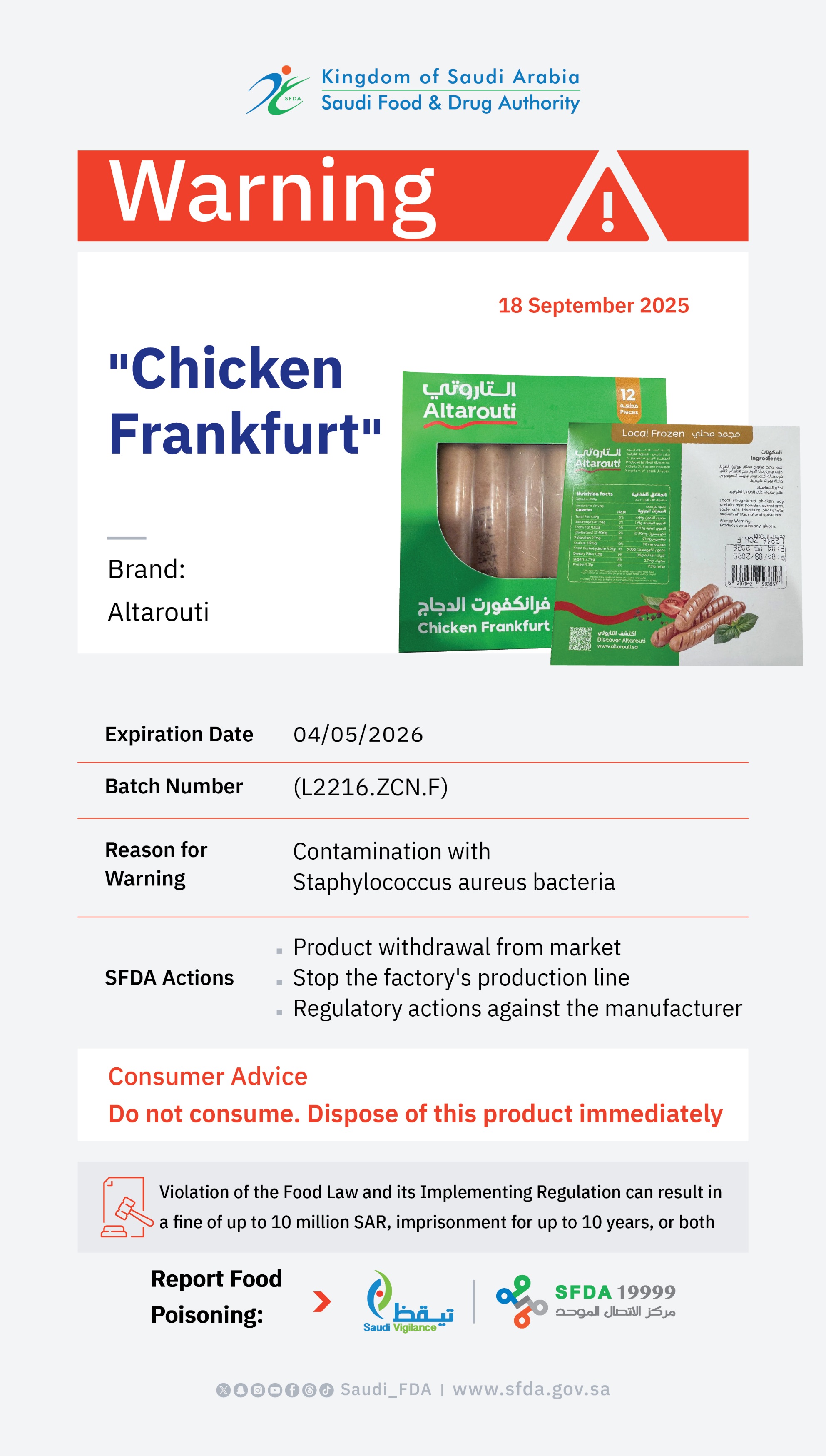
New warnings about serious adverse events with botulinum toxin (Botox) in the U.S.
2008-02-13
On February 8, 2008, The U.S. Food and Drug Administration (FDA), the American equivalent of the Saudi Food and Drug Authority (SFDA), issued a warning based on reports of adverse reactions including respiratory compromise and death following the use of botulinum toxins approved and unapproved uses. The reactions occurs when botulinum toxin spreads in the body beyond the site where the drug was injected. The most serious cases had outcomes that included hospitalization and death, and occurred mostly in children treated for cerebral palsy associated limb spasticity. Use of botulinum toxins for treatment of limb spasticity (severe arm and leg muscle spasms) in children or adults is not an approved use in the United States.
Botulinum toxin type A has sold in The Kingdom as Botox since 1998.
Botox (botulinum toxin type A) is approved in the U.S for treatment of conditions such as blepharospasm (spasm of the eyelids), cervical dystonia (severe neck muscle spasms), and severe primary axillary hyperhydrosis (excess sweating). Botox Cosmetic, also botulinum toxin Type A, is approved for temporary improvement in the appearance of moderate to severe facial frown lines.
Myobloc (botulinum toxin Type B) is approved in the U.S for the treatment of adults with cervical dystonia; the safety and effectiveness of Myobloc for cervical dystonia in children have not been established.
New recommendations for health care providers who use medicinal botulinum toxins:
- Be alert to the potential for systemic effects following administration of botulinum toxins such as: dysphagia, dysphonia, weakness, dyspnea or respiratory distress. Understand that these effects have been reported as early as one day and as late as several weeks after treatment.
- Provide patients with the information they need to be able to identify the signs and symptoms of systemic effects after receiving an injection of a botulinum toxin.
- Tell patients they should receive immediate medical attention if they have worsening or unexpected difficulty swallowing or talking, trouble breathing, or muscle weakness.
Report Adverse Drug Reactions to the Saudi FDA
The public and health professionals are encouraged to report adverse drug reactions the National Pharmacovigilance Center on the Internet at





